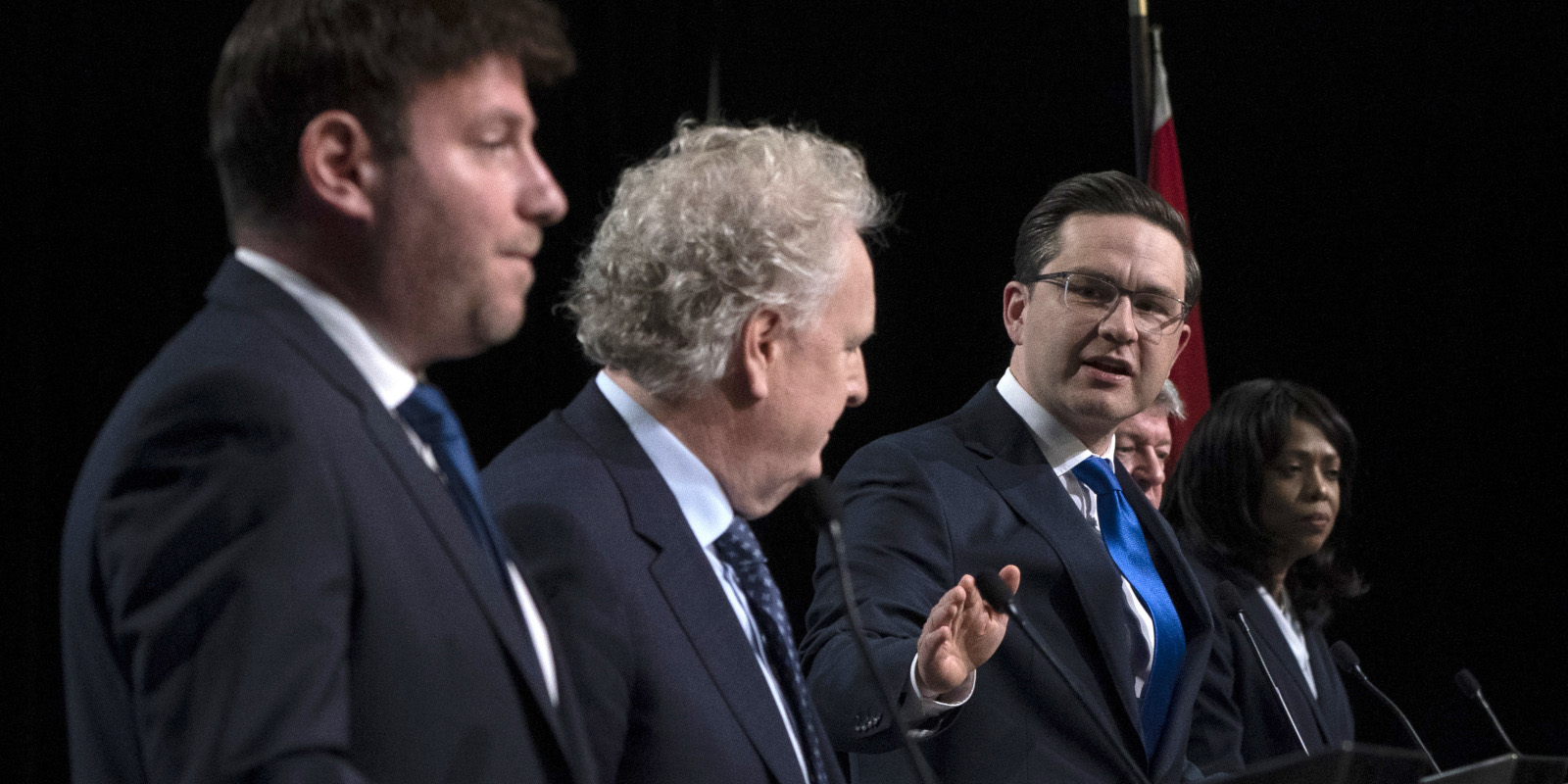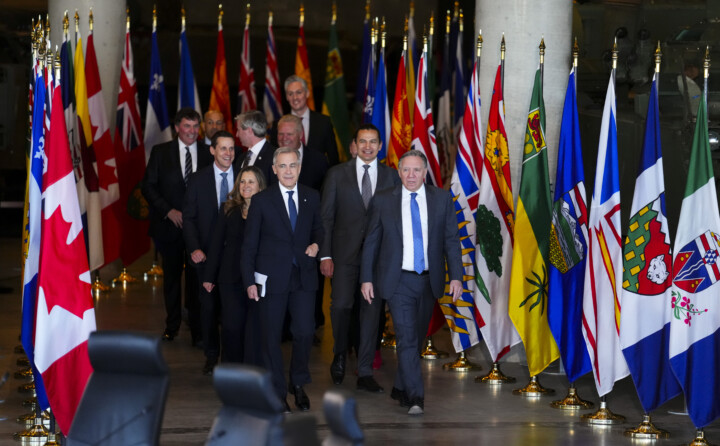Candidates lined up to attack Pierre Poilievre for his advocacy for cryptocurrencies as the Ontario-area MP got his first taste of frontrunner attention in the first official debate in the Conservative Party leadership race Wednesday night.
Poilievre has touted the digital currencies as an emblem of freedom and said he wants Canada to be the “blockchain capital of the world.”“At a campaign stop in London, Ont. on Monday, Poilievre said Canadians need more financial freedom, which cryptocurrencies including bitcoin can offer. ‘Government is ruining the Canadian dollar, so Canadians should have the freedom to use other money, such as bitcoin,’ Poilievre said. ‘Canada needs less financial control for politicians and bankers and more financial freedom for the people.'” https://tnc.news/2022/03/28/bitcoin-lets-canadians-opt-out-of-inflation-pierre-poilievre/
“Everyone just finds it totally bizarre what Mr. Poilievre is suggesting,” said Jean Charest. “Bitcoin has lost 60 percent of its value since November of last year and 20 percent in the last month. Anyone following his advice that he saw on Youtube would have lost 20 percent of their earnings.”
Both Leslyn Lewis and Patrick Brown also mentioned the recent swoon in digital currency values as an indictment of Poilievre’s judgment.
“I disagree with Mr. Poilievre’s approach that you can opt-out of inflation with cryptocurrency,” said Brampton Mayor Patrick Brown. “Magic internet money fluctuates vastly.”
Poilievre said the other candidates were misleading voters about his position on the digital currencies.
“I clearly stated that people should have the freedom” to invest in cryptocurrency, said Poilievre.
“The reason people have chosen to exercise that freedom is because central banks have been attacking the value of our national currency by printing $400 billion here in Canada,” said Poilievre.
“I can’t believe you have a bunch of careers politicians up here giving people investment advice,” said Roman Baber, a former Ontario MLA, to laughs from the crowd.
Last night’s debate didn’t reach the same heights of fiery confrontation as the previous week’s event, which saw sparks fly between Poilievre and Charest on the trucker protests that swept across Canada earlier this year.Handshake snubs and a defence of the truckers in an ill-tempered CPC debate
In response to a question on the protests, Poilievre said he had supported peaceful protesters who were fighting for their liberties and disapproved of any criminal activity.
Brown skirmished with Poilievre on the issue and said he was opposed to any kind of illegal blockade, whether it was truckers or people protesting pipelines.
“Blockades have a massive cost on the country,” said Brown. “Full stop: no illegal blockades.”
The debate was a frenetic affair, with the candidates initially expected to reel off responses in 30 seconds while navigating a strict ban on mentioning other candidates or politicians in the first round. The moderator, former television journalist Tom Clark, frequently interrupted the candidates and lectured the crowd about cheering for a candidate’s response.
The debate also featured a lightning round that asked the candidates about their favourite books, musicians, TV shows, and their political heroes. The final question in that round asked candidates what the biggest threat to Canada is and allowed 15 seconds for responses.
The most notable development compared to last week’s debate at the Canada Strong and Free Network conferenceCanada’s conservatives gather in a moment of ideological turmoil was the appearance of Patrick Brown, who had declined to attend that event.
Brown wasted no time ripping into Poilievre in his opening statement. Although the candidates weren’t allowed to mention each other by name, Brown clearly referenced his rival as a divisive and polarizing candidate who “has walked into every trap” the Liberals have sprung for him.
In his opening statement, Poilievre stuck to the themes that have been drawing massive crowds throughout the campaign, including cost of living issues and inflation. Poilievre also promised to replace the governor of the Bank of Canada if he were to become prime minister, capping off a series of attacks on the Bank which were met with a furious response from a former governor.
In response to a Poilievre comment that the bank officials are “financially illiterate,” former Bank governor David Dodge fired back this week.
“That’s bullshit. I’m very insulted by that,” said Dodge during an interview on CTV’s Question Period on Sunday. “They made a judgment call, which I think was 100 percent right.”
Later in the debate, Charest took aim at Poilievre’s pledge to replace Bank of Canada governor Tiff Macklem.
“It’s irresponsible. It creates doubt. If you’re an investor looking to come to Canada and you hear that kind of statement coming from a member of the House of Commons, you’d think you were in a third-world country,” said Charest.
In the first round of questions, with a maximum of 30 seconds for responses, the candidates also tackled a question on whether they would legislate on abortion.
Poilievre said a government under his leadership would not propose or pass any legislation restricting abortion in Canada. Leslyn Lewis decried the current state of the law in Canada, pointing out that an abortion at nine months would currently be legal, although she was cut off by the moderator before she could say if she would propose legislation on this.
In a follow-up question, Charest took the chance to attack Poilievre for not being clear about his personal opinion on the issue.
“Every candidate in this race needs to tell the women of Canada where they stand, whether they’re pro or against. Mr. Polievre’s answer does not meet that test,” said Charest.
On Indigenous issues, Clark asked all the candidates if they would implement all 94 recommendations of the truth and reconciliation commission and both Poilievre and Charest turned the issue toward the resource economy.
“They should be part of our resource economy. They should own equity. I would put together a Crown corporation that would allow them to own equity,” said Charest.
Recommended for You
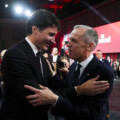
Canadians lost confidence in Parliament at end of Justin Trudeau’s prime ministership: Statistics Canada
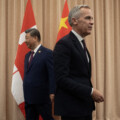
‘All risk and no reward’: The Roundtable on why Carney’s China trip is a really big deal
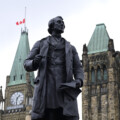
Mark Carney’s spelling and the ghost of Sir John A. Macdonald
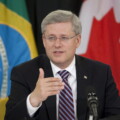
Harper was right—Canadian foreign policy should prioritize the Americas: The Weekly Wrap

